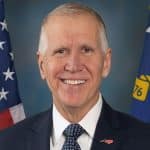Mark Calabria is one of the most prominent thought leaders in the housing policy sector. He is a senior advisor to the Cato Institute and the co-founder of Cato’s Center for Monetary and Financial Alternatives. Calabria served as chief economist for Vice President Mike Pence from February 2017 until he was sworn in as director of the Federal Housing Finance Agency (FHFA) in April 2019. He served as the FHFA’s director until the U.S. Supreme Court’s ruling June 2021 ruling in Collins v. Yellen gave President Joe Biden the ability to replace him before his five-year term was over.
Calabria’s leadership of FHFA coincided with the Covid-19 pandemic. In his new book “Shelter from the Storm: How a Covid Mortgage Meltdown Was Averted,” he details how his agency operated during this unprecedented crisis and helped to maintain the strength and vibrancy of the American housing market. Calabria spoke with Weekly Real Estate News regarding this tumultuous time in his life.
Congratulations on your new book. What inspired you to write the book?
Well, the Supreme Court suddenly gave me a lot more time on my hands. But, in seriousness, I should say that I’m kind of a book guy – I love to read books and I used to write a lot before I was in government. So, I’m certainly someone who’s inclined to the written word and thought.
The communications aspect and the narrative aspects were important part of the FHFA job. But more importantly, I thought it was something that really worked well in a story that needed to be told. With the mortgage and financial markets, it’s no Operation Warp Speed and it’s certainly not as important in the health care aspects of Covid. I still think it’s an important aspect and nobody else has given the insider’s account.
The housing market was one of the relatively few corners of the American economy that didn’t collapse during the pandemic. Why? What was it that made it stay afloat where everything else was sinking?
Great question. I would say, as a general point, that I don’t think there are enough books about problems actually averted – hence the title.
I would say it’s a combination of factors and not all of it was policy – some of it was just consumer preferences that ended up keeping the strength of the market.
For starters, I think because we dealt with it quickly and kept people in [their homes] that there were no large amount of distressed sales entering the market – which is one of the things that was the big overhang post 2008. You had a lot of liquidity injected into the system, not just from Fannie and Freddie but from the Federal Reserve.
The fact the lockdowns went on longer than people expected, you ended up seeing a lot more people moving.
The amount of people who just got up and moved somewhere else during Covid was a surprising response to me. And obviously, in many of those cases, people weren’t necessarily selling existing houses as much as just buying, so you saw a real imbalance in the housing market because a lot of people were buying second homes without necessarily putting their primary home on the market. Of course, there were a lot of people who were moving because they were renting, so we did see a lot of stress in the rental markets, particularly in the bigger urban areas.
I think I said at one point in the book that a Redfin survey found something like a third of people used their down payment with money from their Covid relief check. So, in 2020 we had this huge bump in savings – and they were spending money on a European vacation. And a lot of people were getting Covid relief checks, which also drove some of the all-cash sales. One thing we learned is a lot of people spent part of their lockdown scanning real estate listing sites.
In regard to scanning listing sites, there was a “Saturday Night Live” skit where they were looking at Zillow as being the Covid-era version of online porn – the people were becoming so obsessed with listings.
I think there was clearly a lot of that. It’s interesting for me and many of us in policy positions that for the first five or six months we would get up, work all day and go to sleep. Some of us didn’t exactly have a lot of time to day trade scan the real estate sites. But that also meant we kind of had a blind side in that we didn’t see a lot of this behavior going on. It shouldn’t have been unexpected – you’ve got several months where you’re basically telling people not to leave their house, so you have a lot of time to look on the on the Internet – they weren’t going to spend all that time working.
I want to I’m curious about the emotional aspect of the Covid era on you. This is obviously not what you signed up for when you agreed to take on the FHFA. How did you cope during this this very stressful time?
That’s a great, great question. We were all in kind of a weird situation and the agency and the agency I managed had about 675 ore 700 employees. There was a real focus on trying to make sure people weren’t getting burned out. And because many of us were stuck at home, you may’ve had multiple generations in the house, but on the other hand you may be one person stuck in an apartment by yourself. It was important to make sure people were connected, and I made a big effort to make sure that myself and the senior management were doing things regularly online with staff.
For me, at least for the first three to five months, it was get up and work all day, go to sleep and then get up to work all day. I was simply just too exhausted to think about being stressed about it.
But during my time at FHFA, we didn’t lose any staff. We had staff that lost parents and things like that, and we were trying to talk to people and comfort and support them.
I mentioned a couple of times in my book about my pets, and I think for a lot of people spending additional time with their pets was a supportive thing. I tried to weave into the book some of those things you get from being at home, so that I guess some future historian will read this and think, “Oh, wow, I forgot that people had to kind of go through that aspect of it.”
But unlike everybody else who simply had their lives hijacked by the pandemic, in my life I had my term cut short by the Supreme Court. I thought I was going to have five years of stability. I can go back and look at my pre-Covid speeches and listen to myself saying we’re going to hit bumps on the housing market at some point. So, I certainly went into the job thinking there would be a crisis that there was a reasonable chance of some sort of crisis at some point.















